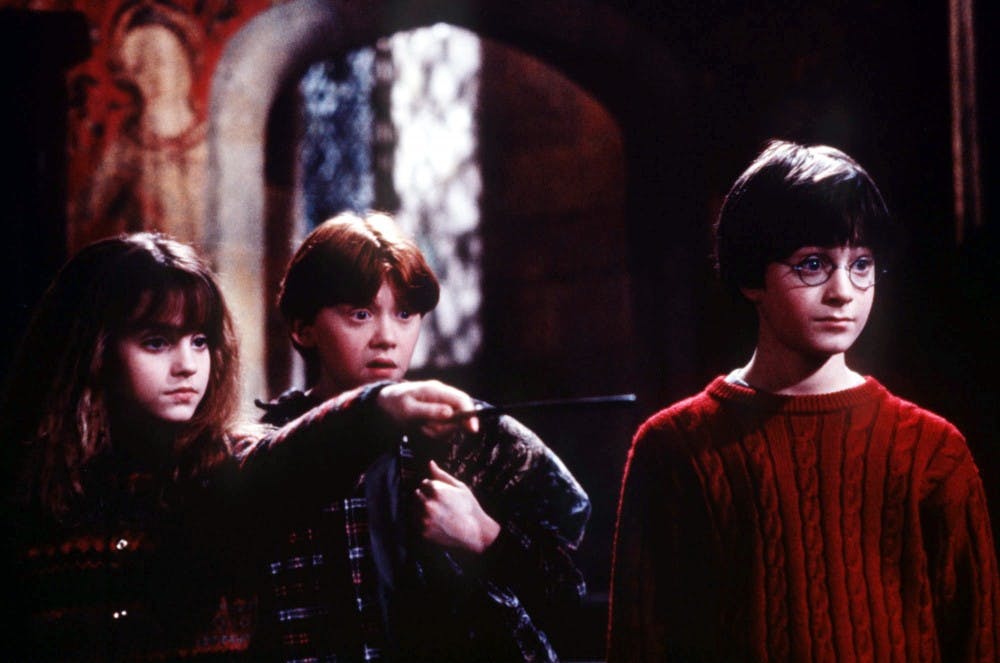There is a question worth raising if someone such as myself, who grew up in a loving, unbroken household, wishes to have a life similar to that of a book character whose parents are dead. The popular entertainment I was exposed to while growing up frequently centered around characters with tragic pasts who then stumbled into something unbelievable — maybe they discovered they had super powers or were from a highly important family. The trend of crafting orphaned and neglected heroes in youth entertainment is dangerous because it tells children that if they make it through a traumatic event, something incredible might happen to them. It not only normalizes tragedy but also glorifies it.
Though children are entirely capable of kind gestures and higher-level emotions, I would argue that across the board they are insensitive beings. Kids don’t empathize well, or make any effort to step into another person’s shoes — and that’s okay. It’s something they learn to do over time. A large part of a child’s empathetic capacity is developed by content they are exposed to on a daily basis. Movies, books and television are incessant influences that teach these skills at a subconscious level.
I distinctly remember wanting to be like Harry Potter as a child. I wanted the wizardry, the adventure and the loyal friends. While Harry certainly could have had all those things without being orphaned, which author J.K. Rowling makes clear throughout the series, the idea that he is "the chosen one" is inherently tied to the death of his parents. Kids want to feel special. I certainly did. I wanted to be the chosen one in a story, and in order to do so, I needed to be an underdog. I needed to rebound from a slew of tragic events.
This is alarming because horrific events do happen to children and the people in their lives. If our youth see tragedy as something exciting that makes you more special, they will fail to truly understand what their peers are going through.
I found similar veins in other series. "A Series of Unfortunate Events," for example, chronicles the life of three orphaned children who live in a world of absurdity and unlucky circumstances. Author Lemony Snicket warns readers of this before they begin the series.
“If you are interested in stories with happy endings, you would be better off reading some other book … this is because not very many happy things happened in the lives of the three Baudelaire youngsters … most everything that happened to them was rife with misfortune, misery, and despair,” Snicket wrote.
Yet, we know that this is not a true warning. Snicket’s ploy to get you to read the story is to tell you that you might not want to read it after all, or that you might not be able to handle the misfortune ahead. To a young audience, this is almost a challenge. Of course they will keep reading the book. I tore through all 13 installments like I was starving for them. And while the characters did in fact have horrible lives, they were rich with adventure. They were unordinary. It was even comical in some ways. I coveted it.
It wasn’t just Harry Potter and the Baudelaire orphans. It was Peter Parker, Bruce Wayne and Clark Kent. It was the mystery-solving Boxcar Children, Tarzan the gorilla-man, jungle-boy Mowgli and a lovable hobbit named Frodo Baggins.
Most of these are stories that I adore, stories that I still hold close to my heart. I have no doubt that they helped me grow and develop in countless other ways. While I do not think that the glorification of tragedy is necessarily intentional, it is something we should deal with.
Part of this responsibility falls on those creating the content, but ultimately a writer’s job is to entertain an audience, not to be a moral compass. It is also difficult to walk the line between presenting tragedies in a real way and keeping the story geared toward children. I do think, however, that writers should seriously consider if making the children orphans is entirely necessary. Maybe it should be done less often.
Ultimately, it is the responsibility of a child’s adult influences to use these books and movies as springboards for conversations about empathy. Teachers, parents and mentors should teach kids to appreciate these characters, understand them but not wish to be them. In all of the reading I did in my youth, that was an angle that was never addressed, and it should have been.

